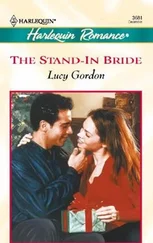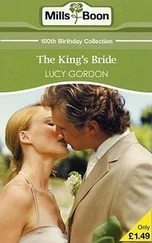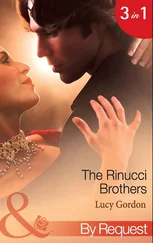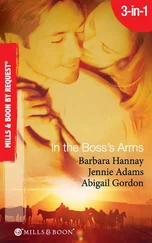Joseph Gordon - The Chronicles of a Gay Gordon
Здесь есть возможность читать онлайн «Joseph Gordon - The Chronicles of a Gay Gordon» — ознакомительный отрывок электронной книги совершенно бесплатно, а после прочтения отрывка купить полную версию. В некоторых случаях можно слушать аудио, скачать через торрент в формате fb2 и присутствует краткое содержание. Жанр: foreign_antique, foreign_prose, на английском языке. Описание произведения, (предисловие) а так же отзывы посетителей доступны на портале библиотеки ЛибКат.
- Название:The Chronicles of a Gay Gordon
- Автор:
- Жанр:
- Год:неизвестен
- ISBN:нет данных
- Рейтинг книги:3 / 5. Голосов: 1
-
Избранное:Добавить в избранное
- Отзывы:
-
Ваша оценка:
- 60
- 1
- 2
- 3
- 4
- 5
The Chronicles of a Gay Gordon: краткое содержание, описание и аннотация
Предлагаем к чтению аннотацию, описание, краткое содержание или предисловие (зависит от того, что написал сам автор книги «The Chronicles of a Gay Gordon»). Если вы не нашли необходимую информацию о книге — напишите в комментариях, мы постараемся отыскать её.
The Chronicles of a Gay Gordon — читать онлайн ознакомительный отрывок
Ниже представлен текст книги, разбитый по страницам. Система сохранения места последней прочитанной страницы, позволяет с удобством читать онлайн бесплатно книгу «The Chronicles of a Gay Gordon», без необходимости каждый раз заново искать на чём Вы остановились. Поставьте закладку, и сможете в любой момент перейти на страницу, на которой закончили чтение.
Интервал:
Закладка:
Then Gustave shook hands with me, placed his hand on my shoulder, and we left the supper-room together. He came down to see me into my carriage, and as I was stepping into it he once more shook my hand and said, “You are very young. I am old enough to be your father. Always remember your English proverb: ‘Look before you leap.’ Good night. Bonne fortune toujours.”
Thus ended my first romance and, with it, my most enjoyable visit to Paris.
CHAPTER VIII
SOLDIERING IN IRELAND
On obtaining his commission a young officer was ordered to report himself at the Royal Artillery Barracks at Woolwich, to undergo six months’ further training in his regimental duties and in practical work at the Arsenal, with occasional visits to the School of Gunnery at Shoeburyness. It was a happy six months if he managed to keep out of trouble, for there were many temptations to overcome. Straight away from the strict discipline of the “Shop,” the young officer found himself – or at least considered himself – quite a gentleman at large. In his own opinion he had become a person of very considerable importance, and the orders he gave had to be implicitly obeyed. His uniform was a source of extreme pleasure to him. He was allotted a whole “Tommy” to himself as a soldier servant. He rejoiced in the possession of quite a big room for his quarters. And there was the Mess.
At that time there had been an amalgamation of the English and Indian Artillery, which were combined into one General List, so that the whole of the Artillery formed one Regiment comprising Horse, Field and Garrison Artillery. The headquarters were at Woolwich, and the Royal Artillery Mess was the Headquarters Mess, and is so still, though lately there have been further sub-divisions of the Regiment. Still, these have not as yet, so far as I know, resulted in any change as regards the Headquarters Mess. It remains to be seen what changes will or will not be made in the future.
One of the institutions attached to the Royal Artillery Mess was the Garrison Theatre. At regular intervals the Royal Artillery officers gave performances at this theatre. Let me tell you that it is seldom that an Engineer or Artillery officer was not a first-rate dancer; for, at the “Shop,” two or three nights a week dancing took place in the gymnasium to the delightful music of the Royal Artillery band. On these nights ladies were not allowed to attend, so the cadets had to supply the ladies amongst themselves. But the continual practice naturally made them good dancers. Personally I took great delight in the art of dancing. I was built just for it, tall, light, thin and long-legged. I was able to pirouette and high-kick fairly well.
I was very keen on private theatricals, so that, amongst my other important duties of those days, I was appointed stage manager and producer for a week’s performance which was to take place at the Garrison Theatre. The play was the old farce, Box and Cox , which was converted into a musical comedy. Some people say to this day that this particular production was the origin of the musical comedies which have since then so amused the public. Mrs. Bouncer was most excellently performed by Lieutenant Bingham, while Lieutenants Jocelyn and Fritz, if I remember rightly, were Box and Cox. Mrs. Bouncer, assisted in the musical part of the piece by a chorus of lusty sergeants and gunners, who revelled in dances and choruses, was a great success, while a specially selected chorus of ballet-girls highly distinguished themselves. The production was quite good, and the financial results on behalf of the regimental charities were most satisfactory. In after years the theatrical experiences thus gained gave me considerable enjoyment. But of this, later on.
The end of the six months’ training at Woolwich being completed, I was appointed to a Garrison company, with its headquarters at Limerick – good old Limerick – which was then known as the paradise of hard-up subalterns. Limerick is a quaint town. There is Old Limerick and Modern Limerick. The old town is situated round the castle, which is on the banks of the Shannon, and where – across the river – stands the old Treaty Stone. It is difficult to describe Old Limerick. One must really see it and live in it to appreciate its dirty houses, poor tenements, its smells and other unhealthy attributes. Yet it is a characteristic little piece of old Ireland. This part of the old town reached down to the cathedral, past which the main street – George Street – runs through the modern town, practically parallel with the River Shannon. With the exception of the old castle, Limerick does not possess any buildings of very particular interest. The best residential part was across the river, Circular Row. Limerick itself has nothing to recommend it as regards picturesqueness, but there is much beauty in the country surrounding it. From just below the castle the River Shannon has some beautiful reaches, right away up to Castle Connell; while Tervoe on the river, Adare Abbey, and many other places are well known.
When I reported myself to my commanding officer at the castle I found that our company, which then consisted of about eighty all told, was doing duty from the very North to the South of Ireland. There was a detachment of some twenty-five men at a place called Green Castle, which was an old fort at the entrance of Lough Swilly, not far off the Giant’s Causeway. Another detachment of some thirty-five men was on duty at Carlisle Fort, one of the forts guarding the entrance into Cork Harbour at Queenstown. This left us about twenty men at our headquarters at Limerick Castle. Our captain was not with the company. He was A.D.C. to a Colonial Governor, and, of course, was seconded. The two senior subalterns were in command of the detachments at Green Castle and Carlisle Fort, so that the commanding officer, our good major and myself, were left at our headquarters with the twenty men. By the time that we found the guard for the day, the major’s two orderlies, my own orderly, the cook and cook’s mate, the district gunner (who was busy keeping our three very old guns, mounted in the tower, polished up), the office clerk and the barrack sweeper, the morning parade consisted usually of the sergeant-major.
At nine o’clock every morning, after first joining, I appeared on parade, when the sergeant-major reported “All present, sir,” and I said, “Carry on, sergeant-major,” and went inside to breakfast. After a time I’m afraid I got into the bad habit of letting the sergeant-major come to make his report at the window of my quarters, which faced the barrack-square. At ten o’clock the major, whose quarters were above mine, and who was the happy possessor of some eight children, appeared at the company office, and I duly reported to him, “All correct, sir, this morning.” For it was only very occasionally that we had a prisoner. The major would answer, “Very good.” I would then ask him, “Do you want me any more to-day, sir?” He would then answer, without a smile, for he was a serious-minded major, “No, thanks.” And then the joys of my day would begin for me.
The way in which my major came to be quartered in Limerick was this. He was the eldest brother of a very well-known family in Tipperary. He had many brothers, all of whom were also well known and much liked throughout the surrounding districts. They were all first-class horsemen, and, needless to say, good sportsmen all round. One of these brothers was at the time Sub-Sheriff of Limerick. It was indeed a difficult post to fill in those days. The country was exceedingly disturbed. Evictions were all too frequent, with the accompanying result of riots and murders, and it required much pluck and tact to carry out the Sub-Sheriff’s duties. My major had been, some time previous to my joining, ordered to Singapore, while another major, a bachelor, was in command of the company at Limerick. In those days officers were allowed to exchange on the payment of fees agreed upon. My major did not relish the idea of proceeding to Singapore with his young family of eight, so he approached the bachelor major at Limerick with a view to an exchange, and offered a very handsome sum. The bachelor major very promptly accepted, and the exchange took place. Just before leaving Limerick the members of the club gave the bachelor major a farewell dinner, and, in proposing his health, the chairman remarked that he didn’t understand why anybody should wish to leave Limerick for such an awful place as Singapore. When answering the toast the bachelor major said he would tell them in confidence the real reason. He went on to say that a short time before he accepted the exchange he had been to dinner with friends, some nine miles away, across the Shannon, in County Clare. He was returning home with the old jarvey on an outside car, and as it was a fairly fine night, moonlight, and he had had a very good dinner, he was enjoying his pipe and now and again having a little doze. They were passing a piece of road which was bounded on one side by a somewhat thick hedge. Suddenly there was a flash and the loud report of a gun, which very promptly woke him and made the old jarvey sit up too, and pull his horse up. Immediately two heads popped up over the hedge, had a good look at the major, and then one of the men said, “Begorra, Pat, we’ve shot at the wrong man again,” and promptly disappeared. “Now, don’t you think, my friends, that it’s time I went to Singapore?”
Читать дальшеИнтервал:
Закладка:
Похожие книги на «The Chronicles of a Gay Gordon»
Представляем Вашему вниманию похожие книги на «The Chronicles of a Gay Gordon» списком для выбора. Мы отобрали схожую по названию и смыслу литературу в надежде предоставить читателям больше вариантов отыскать новые, интересные, ещё непрочитанные произведения.
Обсуждение, отзывы о книге «The Chronicles of a Gay Gordon» и просто собственные мнения читателей. Оставьте ваши комментарии, напишите, что Вы думаете о произведении, его смысле или главных героях. Укажите что конкретно понравилось, а что нет, и почему Вы так считаете.












